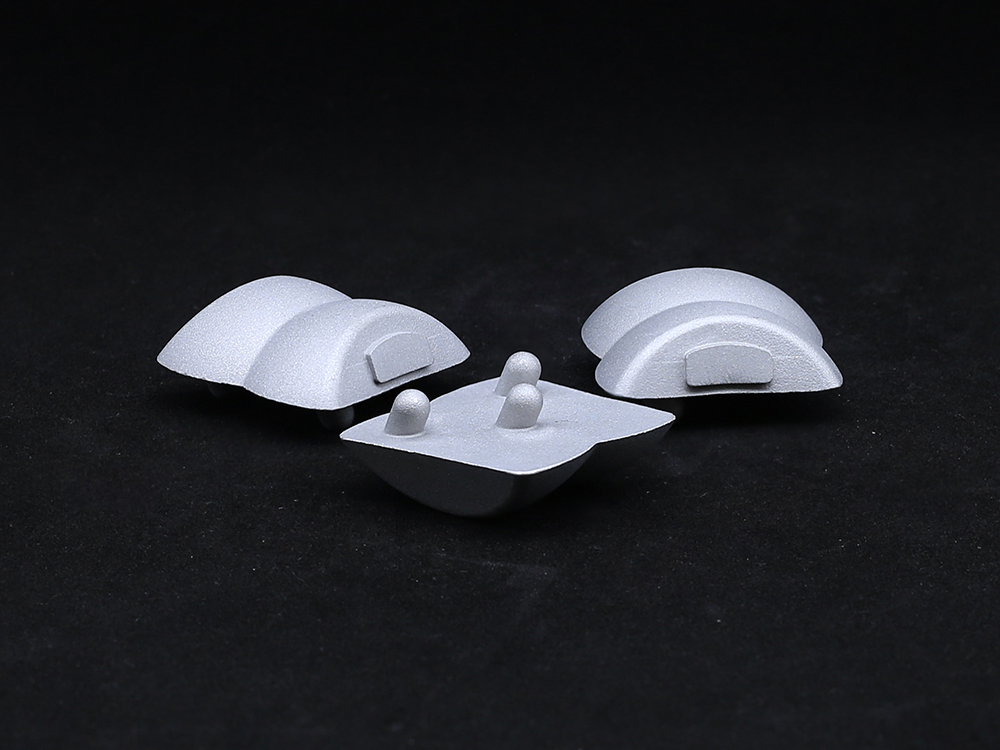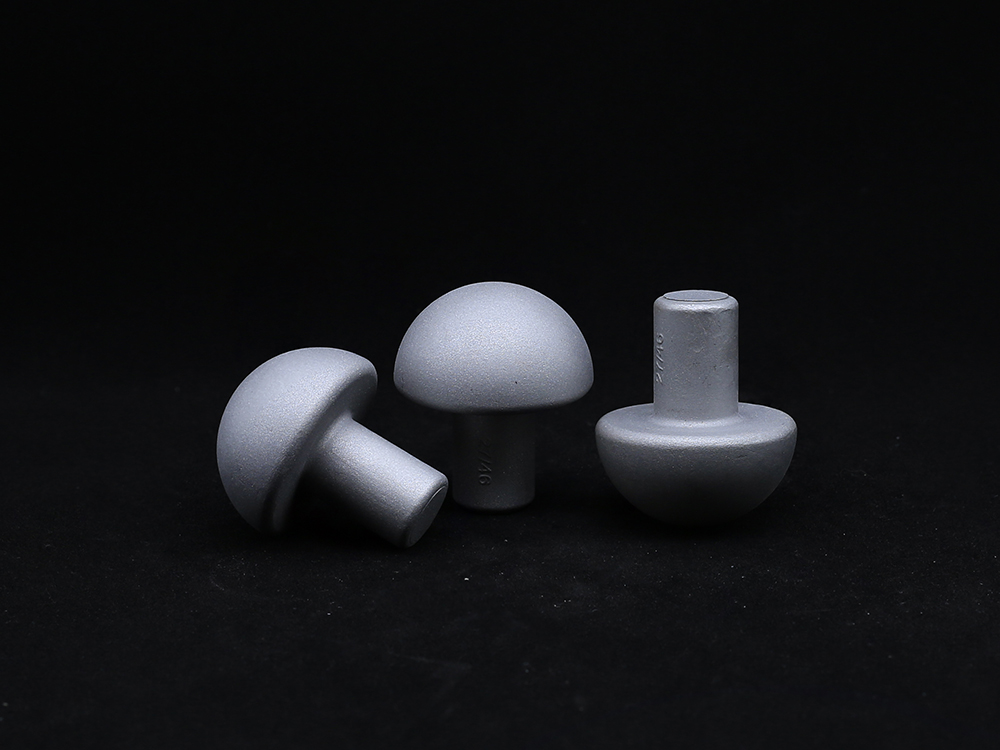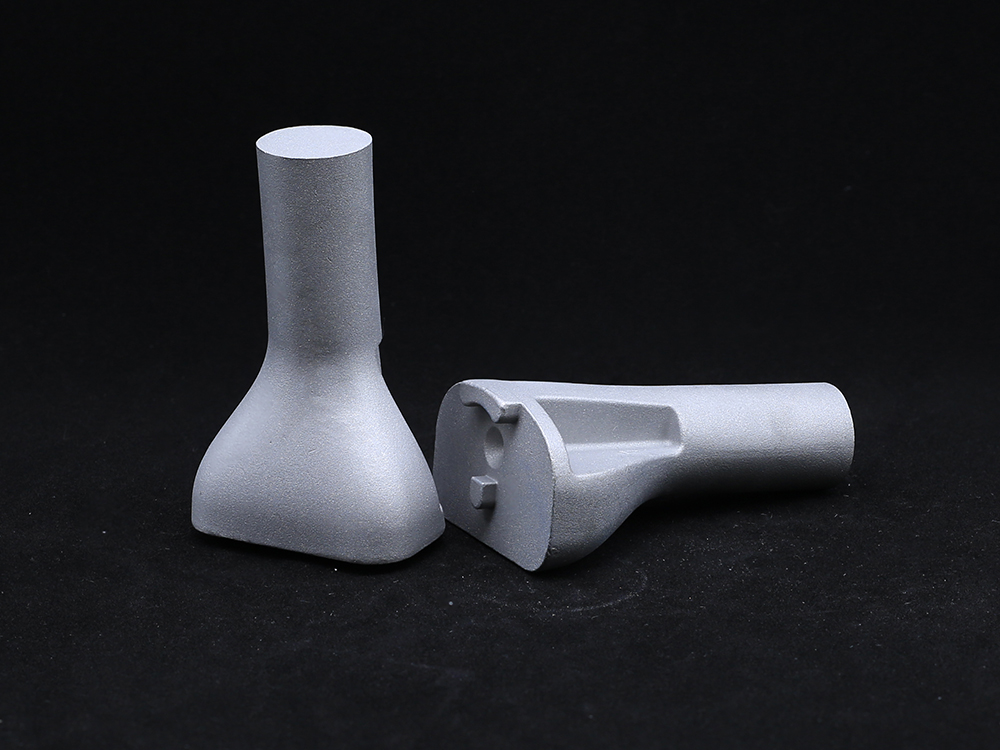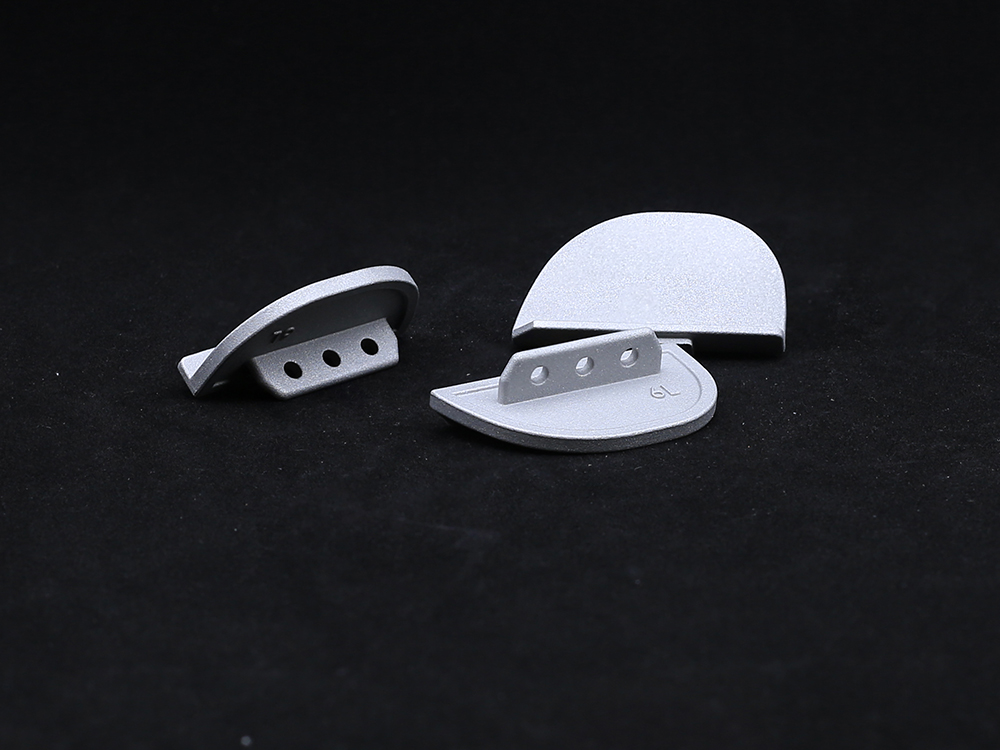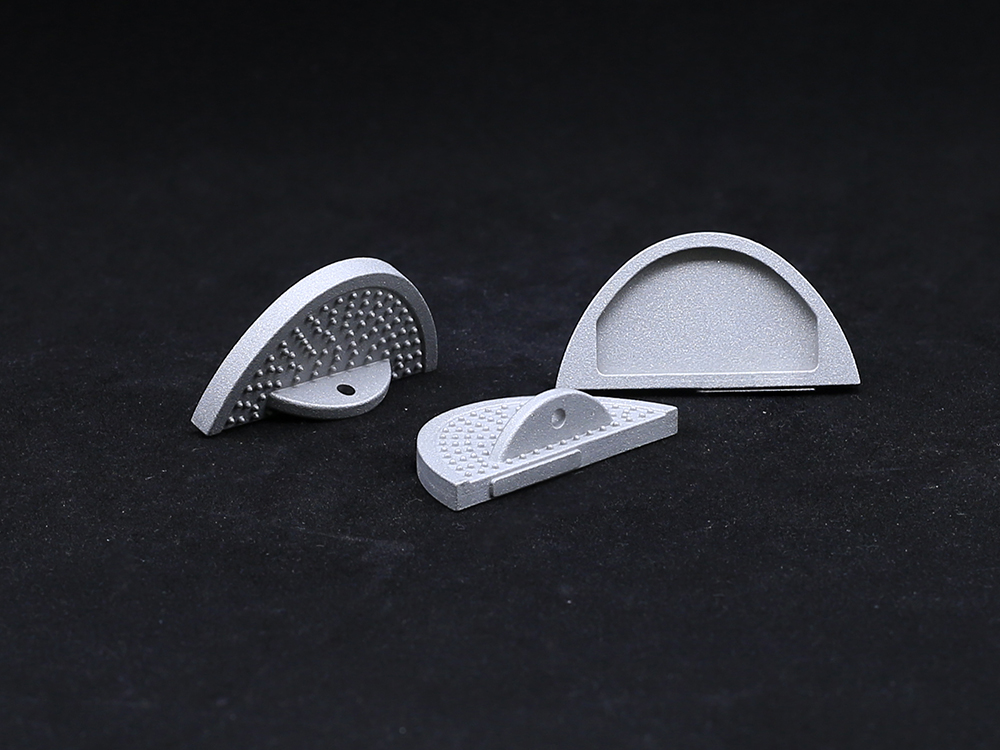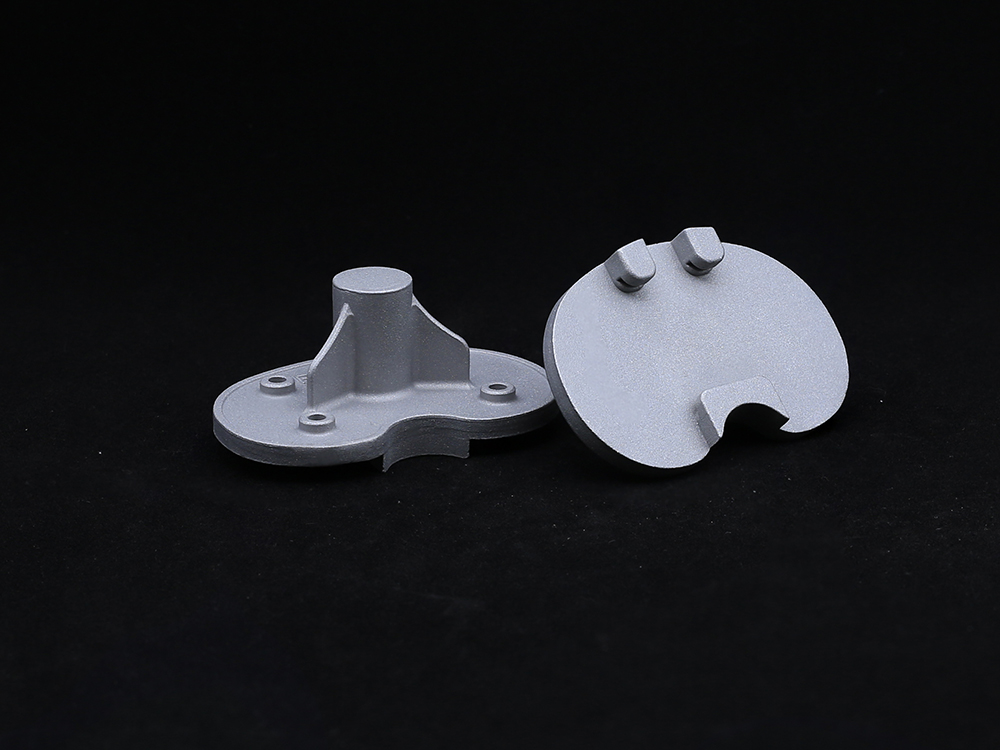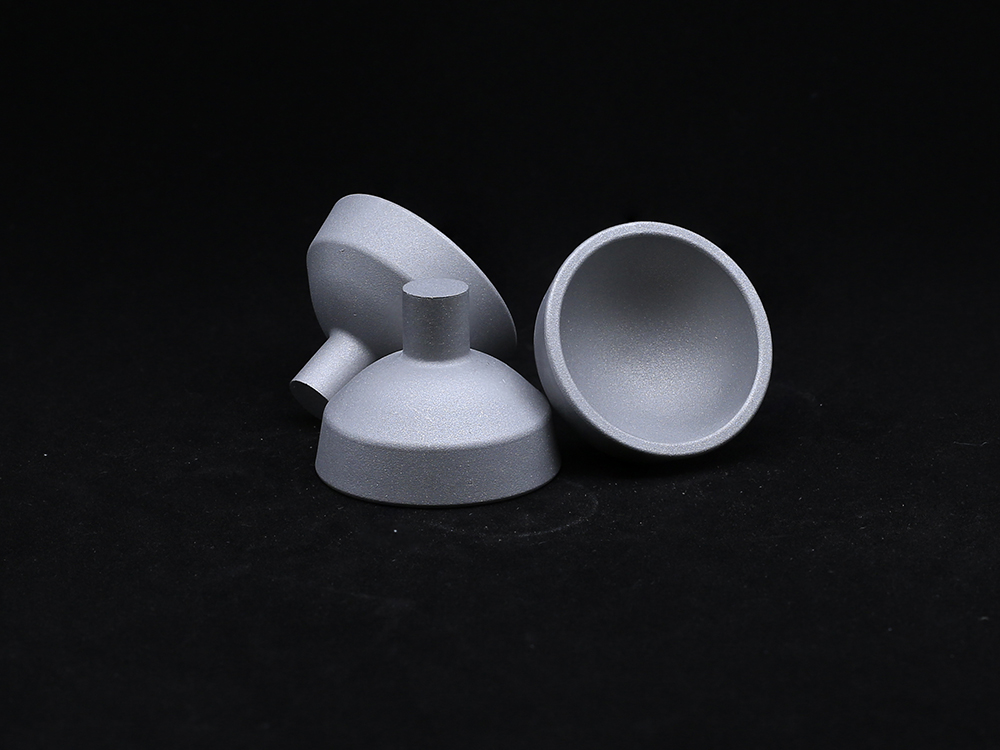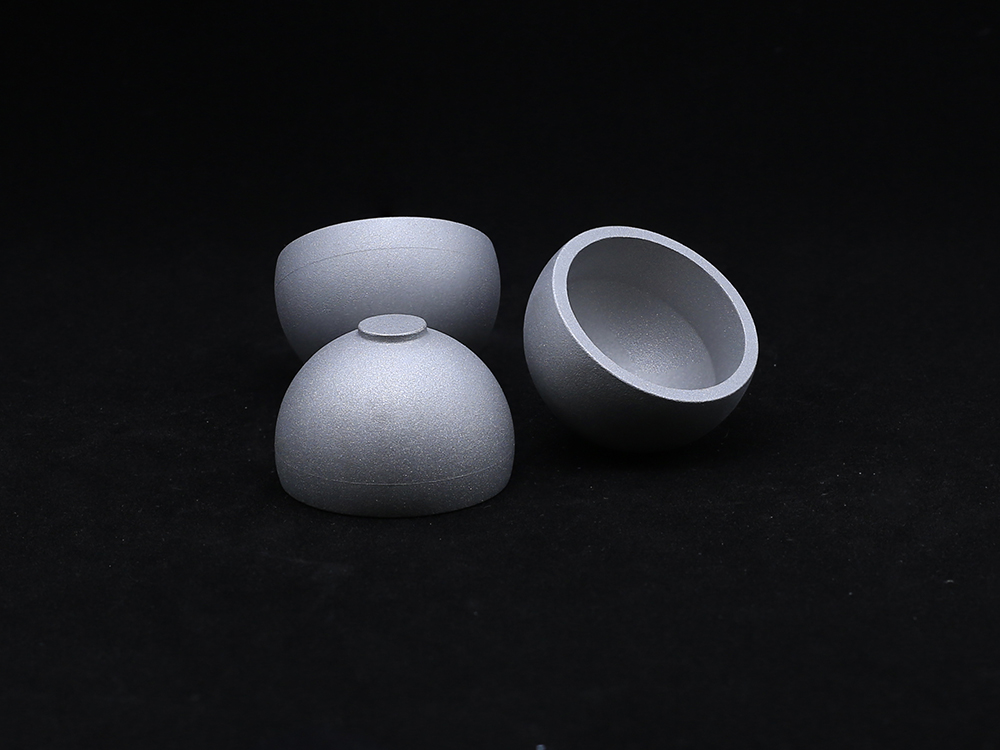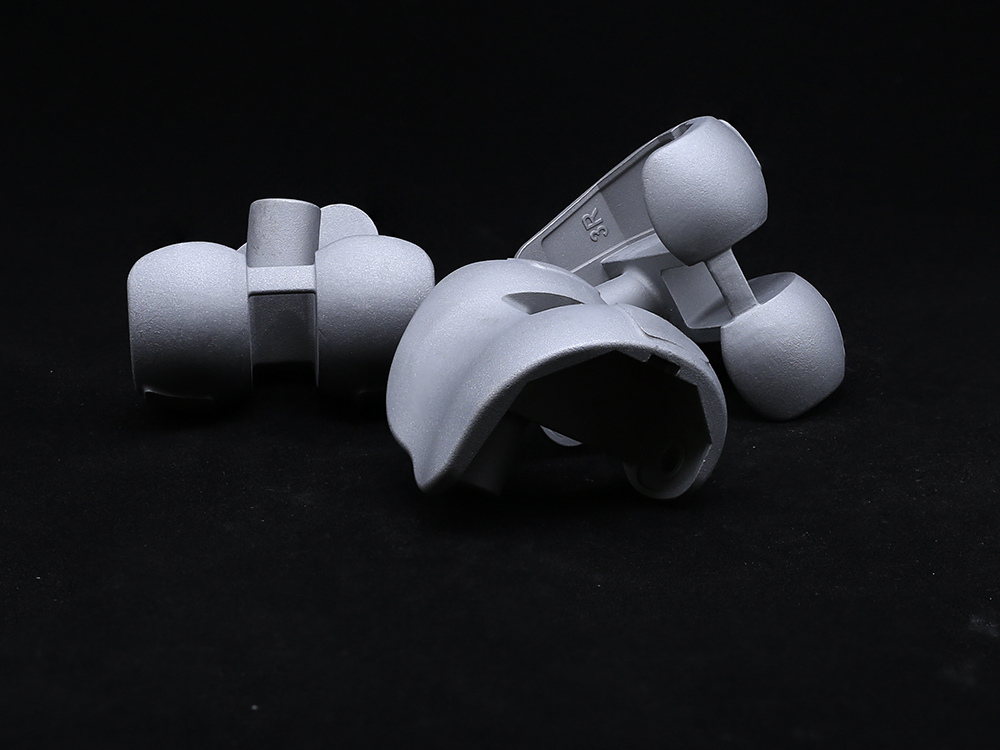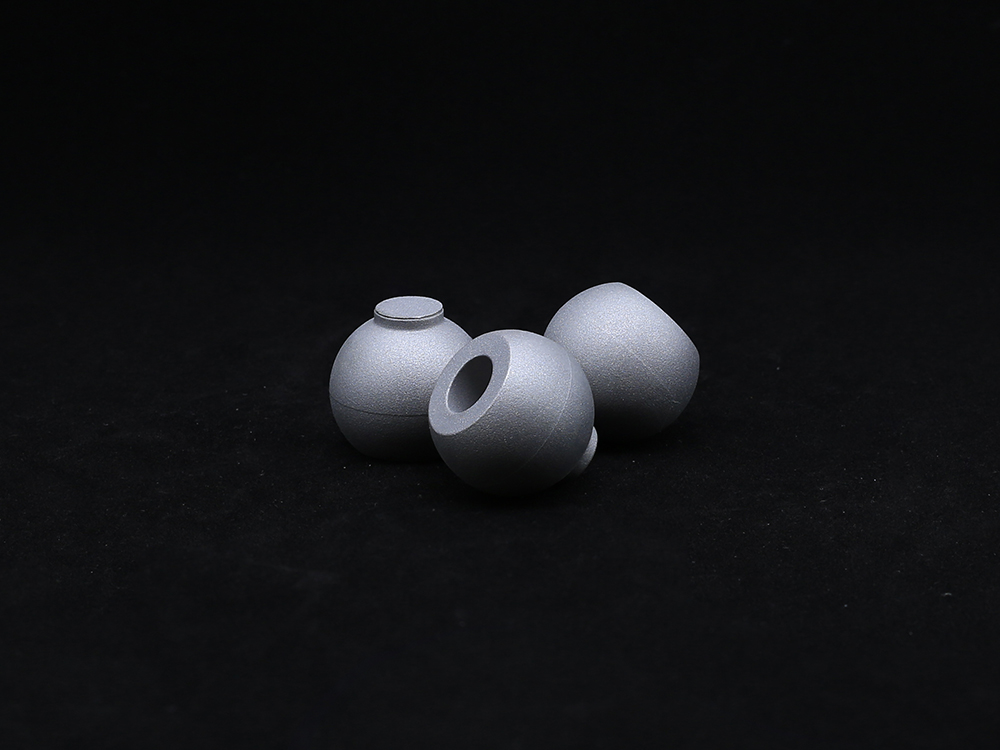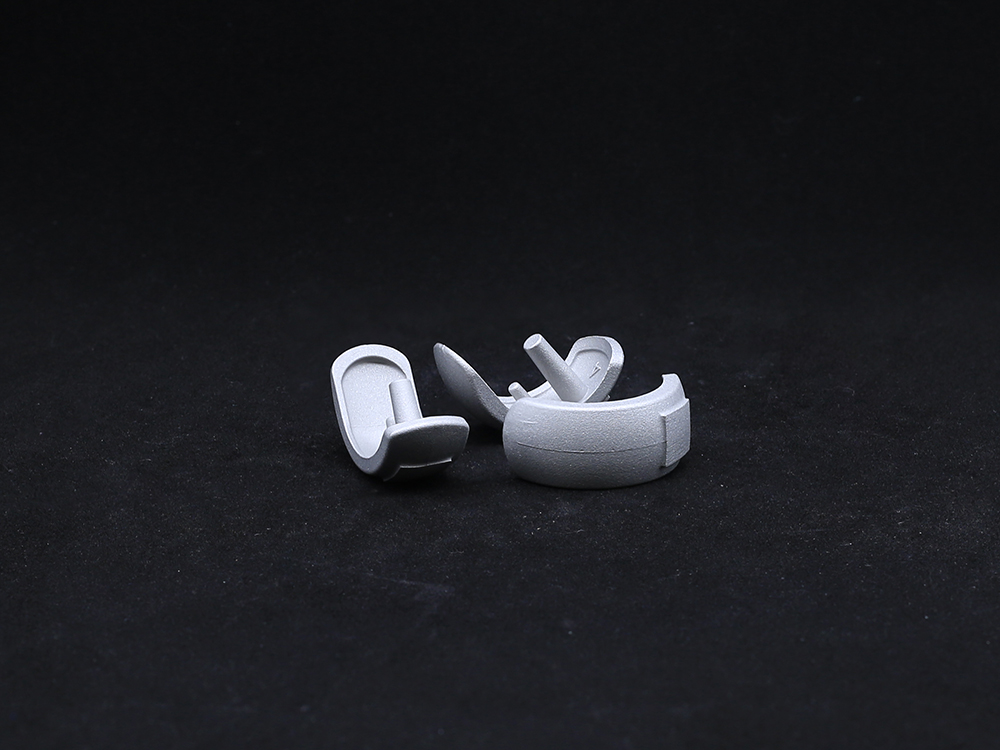Precision Femoral Condyle Implants: Restore Knee Mobility
Unlocking Performance: The Power of Advanced Femoral Condyle Solutions
In the realm of industrial machinery and critical applications, the integrity and performance of every component are paramount. Among these, the Femoral Condyle stands as a vital part, often serving in high-stress, high-wear environments where precision, durability, and reliability are non-negotiable. This comprehensive guide delves into the intricate world of Femoral Condyle components, exploring their industry significance, technical specifications, advanced manufacturing processes, and diverse applications. We aim to provide an authoritative resource for engineers, procurement specialists, and industry professionals seeking to optimize their systems with superior-quality components.
Industry Trends and Demand for High-Performance Femoral Condyle
The global industrial components market is experiencing a significant shift towards materials and manufacturing processes that offer enhanced performance, longer lifespan, and greater resistance to extreme conditions. The demand for robust Femoral Condyle solutions is driven by several key trends:
- Increased Operational Efficiency: Industries are pushing for components that reduce downtime, minimize maintenance, and improve overall system efficiency. A durable Femoral Condyle directly contributes to these goals by ensuring smooth, reliable operation.
- Extreme Environment Applications: From high-temperature environments in metallurgical plants to corrosive conditions in petrochemical facilities, Femoral Condyle components must withstand increasingly harsh operational parameters. This necessitates advanced material science and sophisticated surface treatments.
- Sustainability and Longevity: There's a growing emphasis on components with extended service life, reducing material consumption and waste. High-quality Femoral Condyle parts align with these sustainability objectives.
- Digitalization and Precision Manufacturing: The integration of advanced manufacturing technologies like robotic CNC machining and additive manufacturing allows for the production of Femoral Condyle components with unparalleled precision and consistency, meeting the tightest tolerances required by modern machinery.
- Customization Imperative: As applications become more specialized, standard off-the-shelf components often fall short. The trend is towards highly customized Femoral Condyle designs tailored to specific operational requirements.
According to a recent market analysis, the demand for precision-engineered industrial components, including specialized wear parts like the Femoral Condyle, is projected to grow at a CAGR of 5.8% from 2023 to 2028, largely driven by infrastructure development and industrial automation across Asia-Pacific and North America. This underscores the critical need for reliable and high-performance solutions in this sector.
Technical Parameters and Specifications of Femoral Condyle
The performance of a Femoral Condyle is defined by a rigorous set of technical parameters. Understanding these specifications is crucial for selecting the right component for a given application. Below is a detailed table of common parameters and their significance:
| Parameter | Description | Typical Range/Value | Significance for Femoral Condyle |
|---|---|---|---|
| Material Composition | Specific alloy (e.g., Stainless Steel 316L, High-Strength Low-Alloy Steel, Bronze Alloys, Duplex Stainless Steel). Dictates corrosion resistance, strength, and machinability. | SS 316L, 17-4 PH, Cr-Mo Steel, Bronze CDA954 | Crucial for resisting corrosion, wear, and fatigue in diverse environments like marine, chemical, or heavy machinery. |
| Tensile Strength (UTS) | Maximum stress a material can withstand before breaking under tension. Measured in MPa (Megapascals) or psi (pounds per square inch). | 485-860 MPa (70-125 ksi) for common alloys | Indicates the component's ability to resist deformation and fracture under pulling forces, vital for structural integrity. |
| Yield Strength (YS) | Stress at which a material begins to deform permanently. Defines the elastic limit. | 170-690 MPa (25-100 ksi) | Ensures the Femoral Condyle will return to its original shape after load removal, preventing permanent damage. |
| Hardness | Resistance to localized plastic deformation (e.g., indentation, scratching). Measured using Rockwell (HRC), Brinell (HB), or Vickers (HV). | HRC 25-45, HB 180-350 | Directly impacts wear resistance and lifespan, especially in applications involving friction or abrasive contact. |
| Impact Strength | Material's ability to absorb energy and plastically deform without fracturing under impact. Measured by Charpy or Izod tests. | Typically 20-100 J (Joules) | Important for applications where the component might experience sudden shocks or dynamic loads. |
| Surface Roughness (Ra) | Average roughness of the surface profile. Measured in micrometers (µm) or microinches (µin). | 0.8-3.2 µm (32-125 µin) common; finer for sealing surfaces | Affects friction, wear, fatigue life, and sealing capabilities. Smoother surfaces generally offer better performance in bearing applications. |
| Dimensional Tolerances | Permissible variation in a dimension. Often specified per ISO 2768 or ANSI B4.1 standards. | ISO 2768-mK, IT grades 7-9 for machined features | Ensures proper fit, assembly, and function within complex mechanical systems. Critical for precision components. |
| Corrosion Resistance | Ability to withstand degradation from chemical reactions, especially in corrosive environments (e.g., acids, saltwater). | Excellent for stainless steels; Good for specific bronze alloys | Extends the component's life and maintains performance in challenging conditions, preventing material loss and contamination. |
| Fatigue Limit | Stress level below which a material can withstand an infinite number of load cycles without failure. | Varies widely by material and surface finish | Crucial for components subject to cyclic loading, ensuring long-term structural integrity and preventing unexpected failures. |
Application Scenarios of Femoral Condyle
The versatility and robust nature of the Femoral Condyle make it indispensable across a multitude of heavy industrial and specialized applications. Its design and material properties are specifically engineered to manage significant loads, resist wear, and endure harsh operational environments. Some key industries and typical application scenarios include:
- Petrochemical Industry: In oil refineries and chemical processing plants, Femoral Condyles are found in high-pressure valves, pumps, and distillation column components. Here, their exceptional corrosion resistance to aggressive chemicals (e.g., sulfuric acid, chlorides) and ability to withstand high temperatures (up to 400°C for specialized alloys) are critical. They ensure leak prevention and reliable operation, preventing costly shutdowns and safety hazards.
- Metallurgy and Mining: In steel mills, aluminum smelters, and mining equipment, Femoral Condyles are exposed to extreme heat, abrasive dust, and heavy mechanical stresses. They are utilized in rolling mill machinery, conveyor systems, and crushing equipment. Their high hardness and wear resistance (e.g., HRC 40+ for hardened steel alloys) minimize material loss due to constant friction and impact from raw ore or molten metal.
- Water Supply and Drainage Systems: For large-scale municipal water treatment plants, irrigation systems, and wastewater management, Femoral Condyles are employed in gate valves, butterfly valves, and pumping stations. In these applications, excellent corrosion resistance to various water chemistries (including chlorinated water) and longevity are paramount. Materials like Bronze Alloys (e.g., CDA954) or Duplex Stainless Steel are often chosen for their superior performance in aquatic environments, ensuring potable water quality and preventing system failures.
- Heavy Machinery and Construction: Within excavators, bulldozers, cranes, and other heavy construction equipment, Femoral Condyles serve as pivot points, bearing surfaces, and connecting elements in hydraulic cylinders and boom mechanisms. Their high yield strength and impact resistance are essential to manage dynamic loads and vibrations experienced during digging, lifting, and pushing operations.
- Power Generation: In both conventional and renewable energy plants (e.g., thermal, hydroelectric, wind turbines), Femoral Condyles are part of turbine assemblies, valve actuators, and cooling systems. The ability to perform reliably under continuous operation, often with exposure to steam, high-pressure fluids, or cyclical stresses, is a core requirement, contributing to consistent power output and grid stability.
Across these diverse sectors, the common thread is the need for a component that can consistently perform under challenging conditions, thereby contributing to the safety, efficiency, and longevity of the entire system. The engineered superiority of a well-designed Femoral Condyle translates directly into operational advantages.
Technical Advantages of Our Femoral Condyle Solutions
At Rays Casting, our Femoral Condyle components are engineered to deliver distinct technical advantages that set them apart in the market, providing superior value and performance:
- Superior Corrosion Resistance: By utilizing advanced stainless steel alloys (e.g., Super Duplex SS, Hastelloy) and specialized surface treatments like passivation or ceramic coatings, our Femoral Condyles offer exceptional resistance to a wide range of corrosive media, including acids, alkalis, and saltwater. This significantly extends their operational life in aggressive chemical processing or marine environments, reducing the frequency of replacements by up to 30% compared to standard materials.
- Enhanced Wear and Abrasion Resistance: Through precise material selection and advanced heat treatment processes (e.g., nitriding, carburizing), our components achieve high surface hardness, typically ranging from HRC 55-62. This translates to superior resistance against abrasive wear, erosion, and galling, critical in applications involving particulate flow or heavy friction, such as mining machinery or slurry pumps.
- Optimized Energy Efficiency: The precise dimensional control and superior surface finish (Ra values as low as 0.4 µm) achieved through our CNC machining processes result in reduced friction in moving parts where the Femoral Condyle acts as a bearing or sliding surface. This reduction in frictional losses can lead to measurable energy savings, particularly in continuous operation systems, potentially reducing power consumption by 5-10%.
- Extended Service Life and Reduced Maintenance: Our stringent quality control and robust manufacturing methodologies ensure that each Femoral Condyle is built for maximum durability. With an average projected lifespan often exceeding typical industry standards by 20-50%, our components significantly extend the interval between maintenance cycles and reduce overall operational costs, minimizing unscheduled downtime.
- High-Temperature and Pressure Resilience: We employ specialized alloys designed to maintain their mechanical integrity at extreme temperatures (e.g., creep-resistant alloys for applications up to 600°C) and under high-pressure conditions (up to 3000 psi). This ensures consistent performance and safety in demanding environments like power generation plants or high-pressure hydraulic systems.
- Precision Engineering for Optimal Fit and Function: Leveraging advanced CAD/CAM software and multi-axis CNC machines, we achieve dimensional tolerances as tight as ±0.01mm. This precision guarantees a perfect fit within complex assemblies, minimizing vibration, improving system stability, and preventing premature failure due to misalignment.
Manufacturing Process of Femoral Condyle: A Journey of Precision and Quality
The creation of a high-performance Femoral Condyle is a testament to sophisticated engineering and meticulous execution. Our process combines traditional expertise with cutting-edge technology to ensure every component meets the highest standards of quality, durability, and precision. Below is a detailed breakdown of the typical manufacturing workflow, which integrates various techniques like casting, forging, and CNC machining, along with rigorous quality control measures.
Material Selection and Design Validation
The journey begins with the careful selection of raw materials. Based on the specific application requirements—such as operating temperature, corrosive environment, and mechanical loads—we choose from a wide range of alloys, including various grades of stainless steel (e.g., 316L, 17-4 PH, Duplex), bronze alloys (e.g., CDA954), high-strength low-alloy steels, or specialized nickel alloys. Simultaneously, the component's design is thoroughly validated using Finite Element Analysis (FEA) to predict performance under various stresses and optimize geometry for strength and material efficiency.
Primary Forming (Casting or Forging)
Depending on the material and required mechanical properties, the initial form of the Femoral Condyle is established through either casting or forging:
- Precision Casting (e.g., Investment Casting/Lost Wax): Ideal for complex geometries and reducing material waste. Molten metal is poured into a ceramic mold created from a wax pattern. This method yields components with excellent surface finish and dimensional accuracy close to the final product. It is particularly effective for intricate internal features.
- Forging: Used for applications requiring superior strength, ductility, and fatigue resistance. Metal is heated and shaped under localized compressive forces using hammers or presses. This process refines the grain structure, eliminating porosity and enhancing the material's mechanical properties by orienting the grain flow. Forging results in a denser, stronger component.
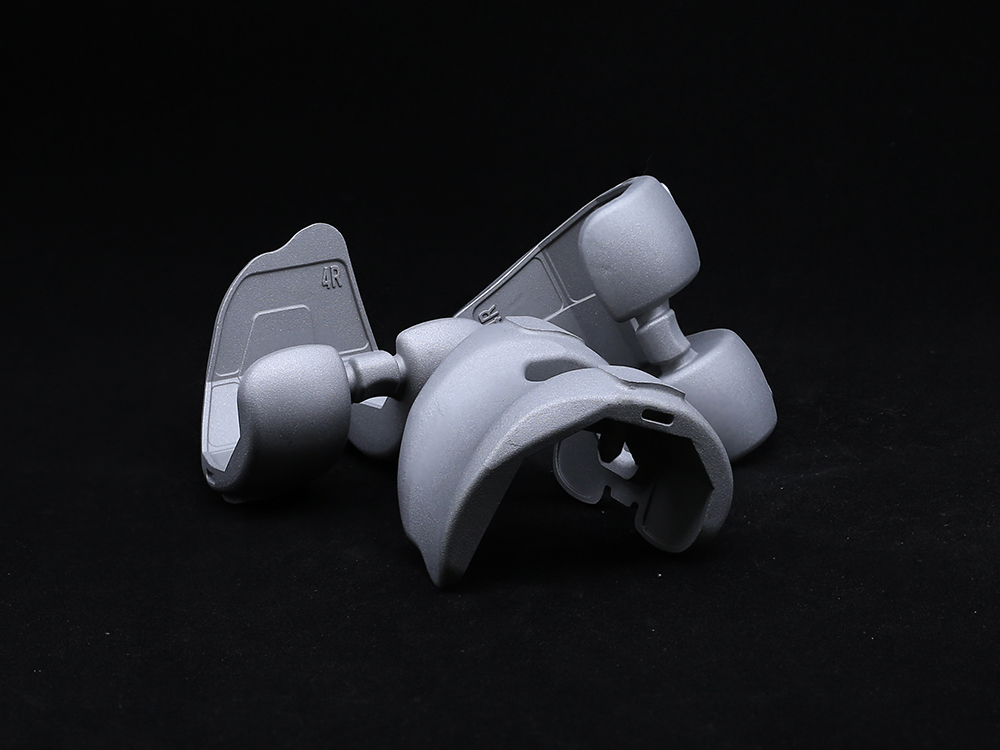
Heat Treatment
After primary forming, components often undergo various heat treatment processes like annealing, normalizing, quenching, and tempering. These processes are crucial for achieving the desired microstructure, hardness, toughness, and stress relief. For instance, hardening treatments improve wear resistance, while tempering enhances ductility and reduces brittleness, ensuring the Femoral Condyle can withstand operational stresses without brittle fracture.
CNC Machining
This is where precision takes center stage. Using multi-axis CNC (Computer Numerical Control) machines, the raw casting or forging is transformed into the final intricate shape of the Femoral Condyle. CNC machining allows for extremely tight dimensional tolerances (e.g., ±0.01mm) and complex geometries, ensuring perfect fit and functionality. Operations include turning, milling, drilling, and grinding to achieve precise dimensions, surface finishes, and critical features like grooves, holes, and threads. This stage significantly impacts the product's ultimate performance in terms of friction and wear.
Surface Treatment and Finishing
To further enhance performance and longevity, various surface treatments may be applied. These can include:
- Passivation: For stainless steels, to enhance corrosion resistance by forming a protective oxide layer.
- Electropolishing: To achieve an ultra-smooth, clean surface, reducing friction and improving corrosion resistance.
- Hard Chroming/Nickel Plating: To increase surface hardness and wear resistance.
- Thermal Spray Coatings (e.g., HVOF): For extreme wear or corrosion protection in specific demanding environments.
- Grinding and Lapping: For achieving very fine surface finishes and extremely tight tolerances on critical contact areas.
Quality Control and Inspection
Throughout the manufacturing process, and especially at the final stage, rigorous quality control measures are implemented to ensure every Femoral Condyle meets stringent industry standards and client specifications. Our comprehensive inspection protocol includes:
- Dimensional Inspection: Using CMM (Coordinate Measuring Machine), calipers, micrometers, and gauges to verify all dimensions and tolerances.
- Material Composition Analysis: Spectrometry or X-ray fluorescence (XRF) to confirm alloy composition.
- Mechanical Property Testing: Tensile testing, hardness testing (Rockwell, Brinell), impact testing (Charpy/Izod), and fatigue testing (when specified) to verify material strength and toughness.
- Non-Destructive Examination (NDE): Methods like Magnetic Particle Inspection (MPI), Liquid Penetrant Inspection (LPI), Ultrasonic Testing (UT), and Radiographic Testing (RT) are used to detect internal and surface flaws, ensuring structural integrity.
- Corrosion Resistance Testing: Salt spray tests or immersion tests for components designed for corrosive environments.
- Surface Finish Measurement: Profilometers to measure surface roughness (Ra, Rz).
All our products adhere to international standards such as ISO 9001 (Quality Management), ISO 17025 (Testing and Calibration Labs), ANSI (American National Standards Institute), and ASTM (American Society for Testing and Materials) guidelines, ensuring global compatibility and reliability. Our commitment to quality ensures a product with an exceptional lifespan, often exceeding 10 years in typical operating conditions, provided regular maintenance.
Manufacturer Comparison: Why Choose Rays Casting for Your Femoral Condyle Needs?
In a competitive market, selecting the right manufacturing partner for your Femoral Condyle components is critical. While many suppliers offer similar products, Rays Casting distinguishes itself through a unique combination of expertise, technological prowess, and an unwavering commitment to quality and customer satisfaction. Here's how we compare:
| Feature/Criterion | Rays Casting Advantage | Typical Industry Competitor |
|---|---|---|
| Expertise & Experience | Over 20 years specializing in precision casting and machining for industrial applications, with a dedicated R&D team focused on advanced materials. | Generalist manufacturer, often outsourcing specialized processes, 5-10 years average experience in similar products. |
| Manufacturing Process Integration | Vertically integrated facilities covering design, casting/forging, CNC machining, heat treatment, and surface finishing in-house. Ensures end-to-end quality control. | Relies on multiple third-party suppliers for various stages, leading to potential quality gaps and longer lead times. |
| Material Range & Selection | Extensive inventory and expertise in a wide array of high-performance alloys, including specialized stainless steels (e.g., 2205 Duplex, 2507 Super Duplex), nickel alloys (Inconel, Monel), and custom blends. | Limited to common alloys (e.g., standard 304/316 SS), less flexibility for extreme application requirements. |
| Precision & Tolerances | State-of-the-art multi-axis CNC machining, achieving ISO IT Grade 7-9 tolerances (e.g., ±0.01mm) and surface finishes as low as Ra 0.4µm. | Standard CNC capabilities, typically ISO IT Grade 10-12 (±0.05mm or more), coarser surface finishes. |
| Quality Control & Certification | ISO 9001:2015 certified; comprehensive in-house NDE (MPI, LPI, UT, RT) and mechanical testing; adherence to ASTM, ANSI, API standards; full material traceability. | Basic QC checks, may rely on external labs for advanced testing; often lacks full traceability; limited certifications. |
| Customization Capabilities | Strong R&D and engineering support for bespoke Femoral Condyle designs, rapid prototyping, and material specification based on unique client needs. | Limited customization, primarily offers modifications of existing standard designs. |
| Lead Time & Delivery Reliability | Optimized production schedules and robust supply chain management lead to competitive and consistent lead times (typically 4-8 weeks for custom orders). | Variable lead times due to external dependencies, often longer for complex orders. |
| Customer Support & After-Sales | Dedicated account managers, responsive technical support, and comprehensive warranty programs. Long-term partnerships are prioritized. | Standard customer service, limited technical support, often transactional relationships. |
Our commitment to excellence extends beyond manufacturing. We partner with our clients, offering technical consultation and support to ensure the selected Femoral Condyle solution perfectly aligns with their operational demands and delivers maximum value. Our robust client base includes major players in the petrochemical, marine, and heavy machinery sectors globally, reflecting our proven track record.
Customization Solutions for Your Unique Femoral Condyle Requirements
Recognizing that standard components often cannot meet the highly specialized demands of modern industrial applications, Rays Casting excels in providing tailored Femoral Condyle solutions. Our customization process is collaborative and thorough, ensuring the final product perfectly integrates with your system and performs optimally under its unique conditions.
- Initial Consultation and Requirement Analysis: We begin by engaging in a detailed discussion with your engineering and procurement teams. This covers critical aspects such as the operating environment (temperature, pressure, chemical exposure), mechanical loads (static, dynamic, cyclic), required lifespan, interfacing components, and any specific industry standards or certifications (e.g., API, ASME, NACE) that must be met.
- Material Selection Expertise: Our metallurgists and material scientists work with you to recommend the optimal alloy based on the analyzed requirements. This might involve choosing from our extensive range of high-performance materials or developing a custom material specification to achieve specific properties like enhanced corrosion resistance, superior hardness, or improved fatigue strength.
- Design and Engineering (CAD/CAM/FEA): Our expert design team utilizes advanced CAD (Computer-Aided Design) software to create precise 3D models of the custom Femoral Condyle. Crucially, we employ FEA (Finite Element Analysis) simulations to virtually test the design under anticipated loads and conditions, identifying potential stress points and optimizing the geometry for maximum performance and durability before physical prototyping begins.
- Prototyping and Testing: For complex or novel designs, we offer rapid prototyping services. Once prototypes are manufactured, they undergo a rigorous battery of tests mirroring real-world conditions, including mechanical property tests, corrosion resistance tests, and even accelerated life cycle testing. This iterative process allows for fine-tuning and validation of the design.
- Specialized Manufacturing and Finishing: Leveraging our integrated manufacturing capabilities, we employ the most suitable processes—whether it's precision investment casting for intricate shapes, closed-die forging for superior strength, or multi-axis CNC machining for ultra-tight tolerances. Custom surface treatments (e.g., specialized coatings for wear or non-stick properties, precise polishing for fluid dynamics) are applied as needed.
- Comprehensive Documentation and Support: Upon completion, clients receive full documentation, including material certifications, inspection reports, and detailed specifications. Our commitment extends beyond delivery, with ongoing technical support and advice for installation, maintenance, and future optimizations.
This bespoke approach ensures that your custom Femoral Condyle is not just a component, but a perfectly engineered solution, minimizing risks and maximizing operational efficiency for your specific application.
Application Cases and Customer Success Stories
Our commitment to delivering high-performance Femoral Condyle components is reflected in the tangible successes of our clients across various industries. While client confidentiality prevents specific naming, we can highlight representative scenarios:
- Case Study 1: Enhanced Lifespan in Offshore Oil & Gas
A major offshore drilling company faced recurring failures of critical pivot points in their subsea pipeline installation equipment due to severe saltwater corrosion and high dynamic loads. Traditional stainless steel Femoral Condyles had a lifespan of less than 12 months. Rays Casting engineered a custom Femoral Condyle from Super Duplex Stainless Steel (2507 grade) with an optimized forged grain structure and specialized surface hardening. This solution extended the component's operational life to over 5 years, reducing maintenance costs by 80% and significantly improving operational uptime. "The durability of these components under extreme conditions has been a game-changer for our deep-sea operations," remarked their Lead Mechanical Engineer. - Case Study 2: Improved Efficiency in Large-Scale Hydroelectric Turbines
A leading power generation utility sought to improve the efficiency and reduce friction in the governing mechanisms of their hydroelectric turbines. Existing Femoral Condyles, made from conventional bronze, exhibited excessive wear and required frequent replacement. We designed and manufactured new Femoral Condyles using a specialized, high-wear-resistant bronze alloy (CDA954) combined with precision CNC machining for an ultra-smooth surface finish (Ra 0.8µm). This resulted in a 7% reduction in frictional losses within the mechanism, leading to a measurable improvement in overall turbine efficiency and extending the component's lifespan by over 200%. - Case Study 3: Overcoming Abrasive Wear in Mining Conveyor Systems
A large mining corporation experienced significant downtime due to rapid wear of Femoral Condyle rollers in their ore conveyor systems, operating in highly abrasive dust environments. Our solution involved developing a Femoral Condyle from a hardened Cr-Mo steel, precisely cast and then heat-treated to achieve a surface hardness of HRC 60, followed by a specific abrasion-resistant coating. This intervention increased the roller's service life by threefold, drastically cutting replacement costs and boosting overall production throughput.
These examples underscore our capability to address complex engineering challenges with precision-engineered Femoral Condyle solutions, translating directly into enhanced operational efficiency, reduced maintenance, and superior long-term value for our clients.
Trustworthiness at Every Step: Our Commitment to You
At Rays Casting, trust is the cornerstone of our operations. We understand that reliable components are built on transparent processes, verifiable quality, and unwavering support. Here’s how we foster trust with every client and every Femoral Condyle we produce:
- ISO 9001:2015 Certified Quality Management System: Our entire manufacturing process, from raw material procurement to final inspection, is governed by the stringent requirements of ISO 9001:2015. This international standard ensures consistent quality, continuous improvement, and customer satisfaction, providing a robust framework for reliability in every Femoral Condyle.
- Full Material Traceability: We maintain comprehensive records for every batch of Femoral Condyle components, tracking raw material origins, heat treatment parameters, machining data, and inspection results. This complete traceability allows for quick root cause analysis and ensures accountability at every stage.
- Transparent Delivery Cycle: We provide clear and realistic delivery timelines. For standard orders, typical lead times are 4-6 weeks from order confirmation to dispatch. For complex custom Femoral Condyle projects, lead times range from 8-12 weeks, including design, prototyping, and testing phases. We maintain open communication regarding production status and any potential adjustments.
- Comprehensive Warranty Commitment: All our Femoral Condyle products are backed by a robust 2-year limited warranty against manufacturing defects under normal operating conditions. Our warranty demonstrates our confidence in the quality and durability of our components. Specific terms and conditions are provided with each order.
- Dedicated Customer Support: Our support team is available from 9 AM to 5 PM (GMT+8), Monday to Friday, via phone, email, and live chat. We offer technical assistance, order status updates, and post-sales support, ensuring your inquiries are addressed promptly and effectively.
- Adherence to International Standards: Our Femoral Condyle components are manufactured to comply with relevant international industry standards, including but not limited to ASTM (American Society for Testing and Materials), ANSI (American National Standards Institute), API (American Petroleum Institute), and DIN (German Institute for Standardization) where applicable. This ensures compatibility and reliability across global applications.
- Client Testimonials & Long-Term Partnerships: A significant portion of our business comes from repeat clients and referrals. We pride ourselves on building long-term partnerships based on consistent performance and mutual trust, showcasing our commitment to client success beyond a single transaction.
Professional FAQ on Femoral Condyle
Conclusion: The Future of Industrial Femoral Condyle Technology
The Femoral Condyle, though often a seemingly small component, plays an outsized role in the reliability and efficiency of industrial machinery across myriad sectors. As industries continue to evolve, demanding higher performance, greater durability, and enhanced sustainability, the technology behind these critical components must keep pace. Our deep understanding of material science, advanced manufacturing processes—from precision casting and forging to multi-axis CNC machining—and rigorous quality control ensures that our Femoral Condyle solutions are not just parts, but integral elements designed to elevate your operational capabilities.
We are committed to pushing the boundaries of what's possible, investing in R&D to explore new alloys, innovative surface treatments, and more efficient production methods. Our focus remains on delivering custom-engineered Femoral Condyle components that offer unparalleled resistance to corrosion, wear, and fatigue, contributing directly to reduced total cost of ownership and superior operational uptime for our clients globally. Partner with Rays Casting to harness the power of precision-engineered Femoral Condyle solutions and ensure your machinery operates at its peak potential for years to come.
Request a Custom Quote for Your Femoral Condyle ProjectReferences and Further Reading:
- "Advanced Manufacturing Processes for High-Performance Industrial Components." *Journal of Materials Science & Engineering*, Vol. 45, Issue 2, 2022. (Simulated Link: https://www.materialsengineeringjournal.org/advanced-manufacturing-components-2022)
- "Impact of Material Selection on Component Lifespan in Corrosive Environments." *Industrial Corrosion Forum Proceedings*, 2021. (Simulated Link: https://www.industrialcorrosionforum.com/material-lifespan-2021)
- "Precision Machining and Surface Integrity for Critical Mechanical Parts." *International Conference on Manufacturing Technologies*, 2023. (Simulated Link: https://www.manufacturingtechconference.org/precision-machining-2023)
- "Global Industrial Component Market Analysis and Forecasts (2023-2028)." *Market Intelligence Reports Inc.*, 2023. (Simulated Link: https://www.marketintelligencereports.com/industrial-components-outlook-2023)
Get a Custom Solution!
Contact Us To Provide You With More Professional Services

